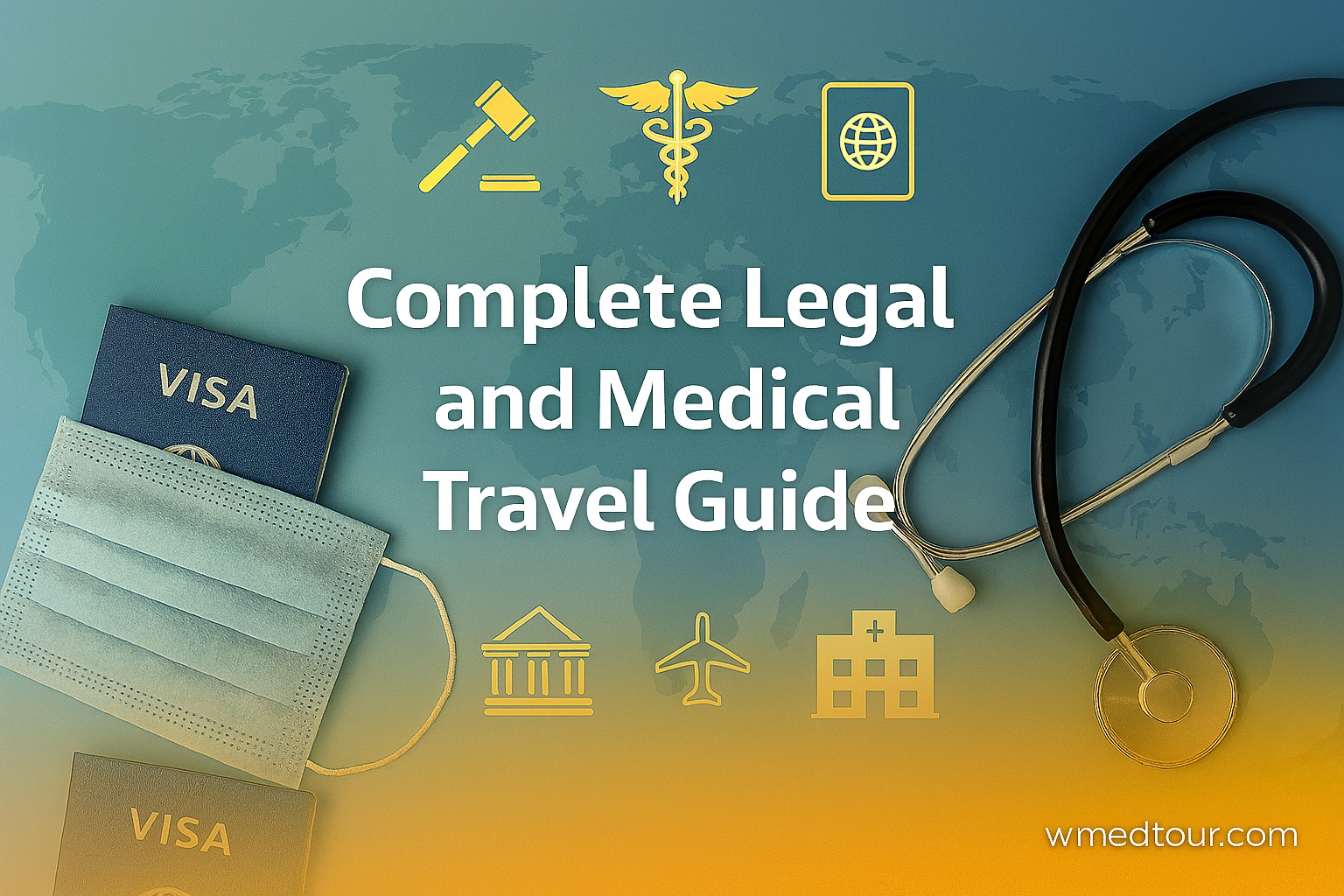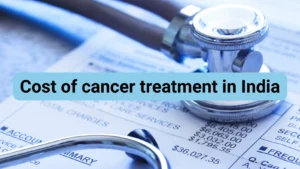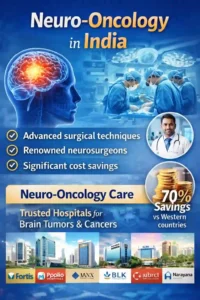Complete Legal and Medical Travel Guide: Understanding Treatment Regulations Across the World
Embarking on a medical journey abroad is a major decision, driven by the search for specialized expertise, greater affordability, or immediate access. Navigating international healthcare, however, involves more than just selecting a clinic; it requires a deep understanding of complex cross-border regulations, visa laws, and cultural expectations. This Complete Legal and Medical Travel Guide offers an authoritative, empathetic framework to help you plan your journey with confidence, security, and legal compliance.
Executive Summary: Your Global Medical Roadmap
Success in medical tourism hinges on preparation. Here are the critical factors every international patient must consider before booking their trip:
- Regulatory Hurdles: Quality assurance varies. Always verify national accreditation (e.g., Germany’s KTQ, Korea’s KAHF, India’s NABH) alongside international marks like JCI.
- Visa Requirements: Medical visas are country-specific. Short-term treatment often requires a standard tourist visa, but specialized, long-term care necessitates dedicated medical visas (e.g., South Korea’s C-3-M or Germany’s National D). Crucially, prepayment is often mandatory for approval.
- Patient Rights: Legal protections are not universal. The strongest patient autonomy laws often exist in Western and highly regulated Asian markets (Germany, South Korea), offering clear legal recourse in case of dispute.
- Cultural Acumen: Expect differences in communication. While Germany favors directness, Asian markets like South Korea prioritize indirect formality and respect for hierarchy.
- Keyphrase Focus: This Complete Legal and Medical Travel Guide is designed as your first and most comprehensive resource.
The Global Regulatory Maze: Quality, Licensing, and Patient Safety
The foundation of a safe medical trip is regulatory certainty. Different countries utilize diverse systems to manage and license their healthcare providers. Therefore, relying solely on international accreditations like JCI (Joint Commission International) is insufficient; national governmental oversight provides the crucial legal backbone.
Understanding Accreditation Hierarchies: National vs. International
While JCI provides a unified global standard, it’s essential to look at the local governing body. For instance, in Germany, the national **KTQ (Cooperation for Transparency and Quality in Healthcare)** certification is the gold standard for clinical rigor and process quality. Conversely, South Korea relies heavily on the **KAHF (Korean Accreditation Institute for Healthcare Accreditation and Forum)**. In India, the **NABH (National Accreditation Board for Hospitals & Healthcare Providers)** is the primary domestic authority. Consequently, a hospital possessing both JCI and its relevant national certificate offers the highest level of proven safety and quality assurance.
The varying levels of regulation also affect specialized fields. For example, aesthetic surgeries in Turkey are governed by strict Ministry of Health (**MOH**) guidelines, which ensures that high-volume centers adhere to minimum safety standards, as detailed in our guide on Turkish Aesthetic Surgeries. Similarly, oncology centers globally must meet complex licensing requirements for advanced therapies like proton beam therapy. Thus, this Complete Legal and Medical Travel Guide urges patients to prioritize facilities with dual certification.
Pros and Cons of Diverse Global Accreditation
PRO Specialization Focus: National accreditations often delve deeper into specific local expertise, such as high-tech diagnostics in South Korea or complex surgery in India.
CON Information Gap: Interpreting non-English national accreditation reports can be challenging without expert assistance.
CON Risk of Fakes: Unaccredited clinics sometimes falsely advertise affiliations, making thorough due diligence critical.
The Crucial Logistical Gateways: Visa Requirements and Logistics
Visa applications for medical travel are often the most common point of failure for international patients. Generally, most countries do not grant a medical visa solely based on a doctor’s letter; they require financial proof, detailed treatment plans, and often, full or partial prepayment.
Comparative Analysis of Medical Visa Types
Visas fall into three broad categories:
- Tourist/Business Visa (Short-Term): Often sufficient for procedures lasting less than 30 days (e.g., most aesthetic procedures in Turkey or dental work). This is the fastest route but offers no legal security for extended stays.
- Schengen/National D Visa (Germany/Europe): Required for extended or complex treatment in Germany. The National D Visa (§ 6 AufenthG) is specifically for medical necessity exceeding 90 days. This process is highly rigid and requires confirmed prepayment and hospital confirmation.
- Specialized Medical Visas (South Korea/India): Countries like South Korea offer the C-3-M (short-term medical traveler) and G-1 (long-term treatment) visas, which streamline the process but demand official documents from the inviting hospital. India provides a special ‘Medical Visa’ (M-Visa) for the patient and a ‘Medical Attendant Visa’ (MX) for accompanying family, reflecting its established medical tourism infrastructure.
Moreover, securing a long-term visa requires consistent communication between the patient, the hospital’s International Patient Department (IPD), and the local consulate. The required documentation often includes certified translations of the patient’s entire medical history.
Pros and Cons of the International Visa Process
PRO IPD Support: Hospitals that frequently host international patients have specialized departments to assist with visa paperwork.
CON Prepayment Risk: Requiring full prepayment before visa approval can expose the patient to financial risk if the visa is denied (though refunds are legally mandated, the process can be slow).
CON Time Sink: Long-term medical visa applications, such as the one described in our South Korea Guide, can take weeks or even months to process, delaying critical care.
Patient Autonomy and Legal Recourse: Knowing Your Rights Globally
The concept of patient rights, particularly informed consent and medical liability, varies widely. Consequently, what constitutes negligence in one country may be handled differently in another. Understanding the legal framework is a core component of this Complete Legal and Medical Travel Guide.
Informed Consent: A Cultural and Legal Minefield
In highly regulated environments like Germany, informed consent requires the doctor to thoroughly explain the procedure, its risks, alternatives, and costs in a language the patient fully comprehends. This is driven by strict patient rights legislation (Patientenrechtegesetz). In contrast, in some more traditional Asian or Middle Eastern cultures, decisions might be heavily influenced by family or paternalistic doctors, requiring the patient to assert their right to direct information.
Furthermore, data protection is paramount. European destinations are bound by the strict **GDPR** (General Data Protection Regulation), offering the highest standard of patient data privacy. Other countries, while having local laws, may not offer the same level of legal protection, especially regarding the sharing of medical records internationally. The WHO emphasizes the importance of national regulatory oversight in this area (nofollow).
Liability and Dispute Resolution
In the event of medical malpractice, the legal path for international patients can be complex. Germany uses independent medical arbitration boards (**Ärztekammern**) before civil courts. Alternatively, in Turkey, disputes are handled through specialized consumer courts or medical liability commissions. India, similarly, has a tiered consumer court system. Legal security is highest in jurisdictions where the system for international patient disputes is explicitly codified and transparent, which you can explore further in our detailed Iran Guide.
The Global Cost Equation: Value vs. Expenditure
Choosing a destination is often a balance between cost and guaranteed quality. Medical travel markets can be broadly categorized into premium, value, and emerging destinations.
Premium Markets (Germany, South Korea)
These markets demand the highest prices, comparable to or slightly lower than the US, but they offer unparalleled expertise in complex, research-driven fields like advanced oncology and robotic surgery. Costs are a reflection of high physician training, cutting-edge technology, and rigorous national quality control (KTQ, KAHF). However, the long-term value lies in reduced complication rates and better outcomes for high-risk conditions.
Value Markets (Turkey, India, Iran)
These regions offer significant cost savings, often 50-70% less than Western markets, especially for high-volume procedures like aesthetic surgery, dental work, and general orthopedics. Quality relies heavily on specific, accredited private institutions, as detailed in our guide on Hair Transplant Costs in Turkey. The regulatory speed and lower living costs contribute to the overall affordability. Therefore, due diligence on the specific hospital and surgeon is non-negotiable.
Comparative Regulatory and Value Drivers Across Key Destinations
| Criteria | Germany | South Korea | Turkey | India |
|---|---|---|---|---|
| Primary Value | Precision, Research & Legal Certainty | High-Tech Diagnostics & Aesthetics | Speed, Cost-Efficiency & Aesthetics | Affordability & Complex Surgeries |
| National Accreditation | KTQ (Cooperation for Transparency and Quality) | KAHF (Korean Institute for Healthcare) | MOH (Ministry of Health) Guidelines | NABH (National Accreditation Board) |
| Required Visa Type | Schengen/National D (Prepayment Required) | C-3-M / G-1 Medical Visa | Tourist/e-Visa (Medical Tourism Visa available) | Medical (M) Visa and Attendant (MX) Visa |
| Patient Data Law | Strict GDPR Compliance | Strong Local Privacy Laws | Turkish Data Protection Law (KVKK) | Local Data Privacy Laws (Lower Tier) |
| Communication Style | Direct, Formal, Punctual | Indirect, Hierarchical, Respectful | Warm, Transactional, Flexible | Personal, Accommodating, Family-centric |
| Cost Profile | High (Premium) | Medium-High (Tech Premium) | Low (High Volume) | Low (Volume & Favorable Exchange) |
Patient Journey Example: Navigating Complex Oncology Care
Case Study: Ms. Chen’s Multi-Phase Cancer Treatment
Ms. Chen, a patient from Southeast Asia, needed access to an experimental immunotherapy for a rare tumor, which was only available in a few global centers. Firstly, she decided on a university hospital in Germany due to its reputation for research and rigorous regulation. Her primary hurdle was the visa; she had to secure a National Visa D. This involved submitting proof of funds for the high cost of treatment, her diagnosis, the official invitation letter, and fully pre-paying for the first three months of therapy. Secondly, the hospital’s IPD, as recommended by this Complete Legal and Medical Travel Guide, managed the certified translation of her records. During her treatment, the communication was formal and fact-based. Ultimately, her three-month stay was legally secure, and the success of her care was a direct result of the high regulatory standards and expertise of the KTQ-certified facility. Subsequently, she was able to return home with a detailed discharge summary, fully assured of her data privacy under GDPR.
Who is This For? Defining the Global Medical Traveler
Understanding which country best fits your medical needs and risk tolerance is critical. This Complete Legal and Medical Travel Guide segments the global traveler into three main profiles:
- The Complex Care Seeker: Individuals needing cutting-edge oncology, advanced cardiac surgery, or complex neurosurgery. The priority is expertise, research, and minimal error rate, making Germany, South Korea, and high-tier hospitals in India the best fits. We have specific resources on Prostate Cancer Treatments Abroad and Global Heart Surgery Costs.
- The Aesthetically Focused Traveler: Patients seeking high-volume, cost-effective cosmetic procedures like hair transplants, rhinoplasty, or liposuction. Speed and affordability are key, pointing strongly towards Turkey, Iran, and certain clinics in South Korea or Dubai, as detailed in our guide on Rhinoplasty Prices in Iran.
- The Affordable Care Seeker: Those requiring essential treatments, chronic disease management, or procedures like joint replacement where cost savings are paramount. India and Turkey offer excellent NABH/JCI-accredited facilities at low prices. The risk profile is higher if regulatory compliance is not thoroughly checked. You can read more in our Total Knee Replacement Price Guide for India.
Therefore, aligning your destination with your medical and financial priorities is the most important step.
The Regulatory Future: Emerging Trends in Cross-Border Healthcare
The medical tourism landscape is constantly evolving, with new regulations shaping how patients access care. Specifically, future trends will focus on three key areas: digital health passports, centralized data sharing, and telemedicine oversight. The OECD reports that cross-border care volumes are projected to increase by 25% over the next decade (nofollow).
In addition, many countries are exploring new legislation to govern telemedicine consultations across borders, particularly for initial diagnoses and post-operative follow-up. This is driven by the need to ensure that international consultations meet the legal and licensing requirements of the treating physician’s jurisdiction. Finally, emerging markets are actively upgrading their national accreditation bodies to meet global standards, increasing the number of reliable options available to patients.
Frequently Asked Questions (FAQ) on the Complete Legal and Medical Travel Guide
This section addresses at least 20 of the most pressing questions international patients ask about global regulations, culture, and logistics.




